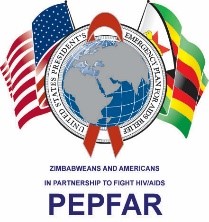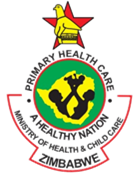HTS for Children and Adolescents: Overview
About this Course
HIV Testing Services (HTS) for Children and Adolescents tablet-based training is for Primary Counsellors (PC) to ensure that they are effectively trained to deliver high quality services to children, adolescents and their families. This course uses a blended-learning model. The classroom session is combined with self-study e-learning on a tablet, and with WhatsApp partner discussions.
This tablet is on loan and to be used together with the workbook provided. After you have completed the course, the tablet will be returned and the workbook is yours to keep. This training is intended to be taken after you have completed your initial training on Integrated Counselling for HIV and AIDS Prevention, Treatment, Care and Support. It follows the Zimbabwe 2014 National Guidelines for HIV Testing and Counselling. The tablet training is to be used in lieu of the HTS for Children and Adolescents in-service training. Although this training is primarily self-study, it is expected that you will attend face-to-face sessions at the beginning and end of the training, and also engage in weekly partner discussions using WhatsApp.
Course Objectives
After completing this course, you will be able to:
- Describe the role of HIV counselling for children and adolescents and the responsibilities of the child and adolescent counsellor
- Demonstrate an understanding of the different developmental and counselling needs of children and adolescents
- Use appropriate, child-friendly counselling skills and techniques which effectively meet the needs of individual children and adolescents and their families
- Share information in an appropriate manner for individual children and adolescents
- Provide adequate HIV testing and follow up counselling as required, including counselling for disclosure, ART, adherence and sexual and reproductive health
- Implement self-care and quality assurance strategies within their workplace
Course Materials and Structure
All of the learning materials are loaded on this tablet, so you will not need an internet connection. You will be provided with a paper workbook to fill in answers to questions, complete your action planning, and also prepare for your final case presentation.
The HTS for Children and Adolescents training manual and the National HIV Testing and Counselling Guidelines are resources included on the tablet. These national documents should be accessible at your worksite.
If you are struggling to keep up with the cases each week, the self-study tips below have strategies for learning successfully in a self-study environment.
You will need about 3-4 hours each week to complete all of the components for the week. This includes completing all learning activities on the tablet, the weekly action plan and WhatsApp partner discussions. You will need to forward your partner discussions to the administrator to receive credit. At the initial session and at the final session you will be given a test to assess your learning.
How to Use
The main page shows buttons listing weekly topics, each with Learning Activities for you to complete.
Types of learning activities are as follows:
The case studies and check your knowledge activities use a few different types of questions. You will see multiple choice, true/false, and questions that ask you to write out responses in your workbook. All of the questions have the correct answers in the feedback on the tablet. After you select your answer, you will click on the “feedback” button to find out if your answers are correct and to read important information. If you want to change your answer choice, you can click on the “clear” button and redo your answer.
Self-Study Tips
Learning on your own at your own pace may be a new experience. Self-study requires a different set of skills and techniques than learning in a classroom environment. For some people, learning at their own pace may be challenging at first. However, self-paced e-learning has many advantages, including allowing you to learn whenever and wherever is convenient.
We have compiled some tips to help you in the e-learning portion of this course.
Motivation
Understand what is expected of you and commit to keeping up with going through the content weekly.
Take responsibility for your own learning. It is up to you to succeed! Some of the questions ask you to write down answers in your workbook and then tap a button to compare your answer to an expert’s. Although it might be tempting to skip writing in your workbook, taking the time to write down your answer will help you practice concepts and help you learn more deeply. This is also true for the self-reflection questions.
Time
A typical e-learning course takes more time than an in-person class.
Plan your week as follows:
- Saturday/Sunday/Monday- Complete tablet materials
- Tuesday/Wednesday- Practice skills at your worksite
- Thursday/Friday- Write your Action Plan and participate in WhatsApp partner discussions
Plan to spend at least two hours per week going through that week’s tablet learning activities. It can be overwhelming and difficult to find time if you wait until the last week to go through all the activities.
One way to manage your time is to set aside specific blocks of time to work. Ask your family to respect the times that you are ‘in class’.
Be sure to take breaks if you need to. This will help maintain your concentration. Stretch. Eat.
Workspace
Designate a space to study. Is it comfortable (but not so comfortable that you fall asleep)? Is it quiet? Can you concentrate?
Technology
Get familiar and comfortable using your tablet. Tap on resource links and navigate forward and back through content. Remember to keep the tablet charged.
Assistance
Ask questions if you have problems by contacting I-TECH at +263 782 708 188.
Contact Information:
Call, SMS, or WhatsApp: I-TECH at +263 782 708 188



The United States President’s Emergency Plan for AIDS Relief (PEPFAR) through the International Training and Education Center for Health (I-TECH) has provided financial support for the development of this training.